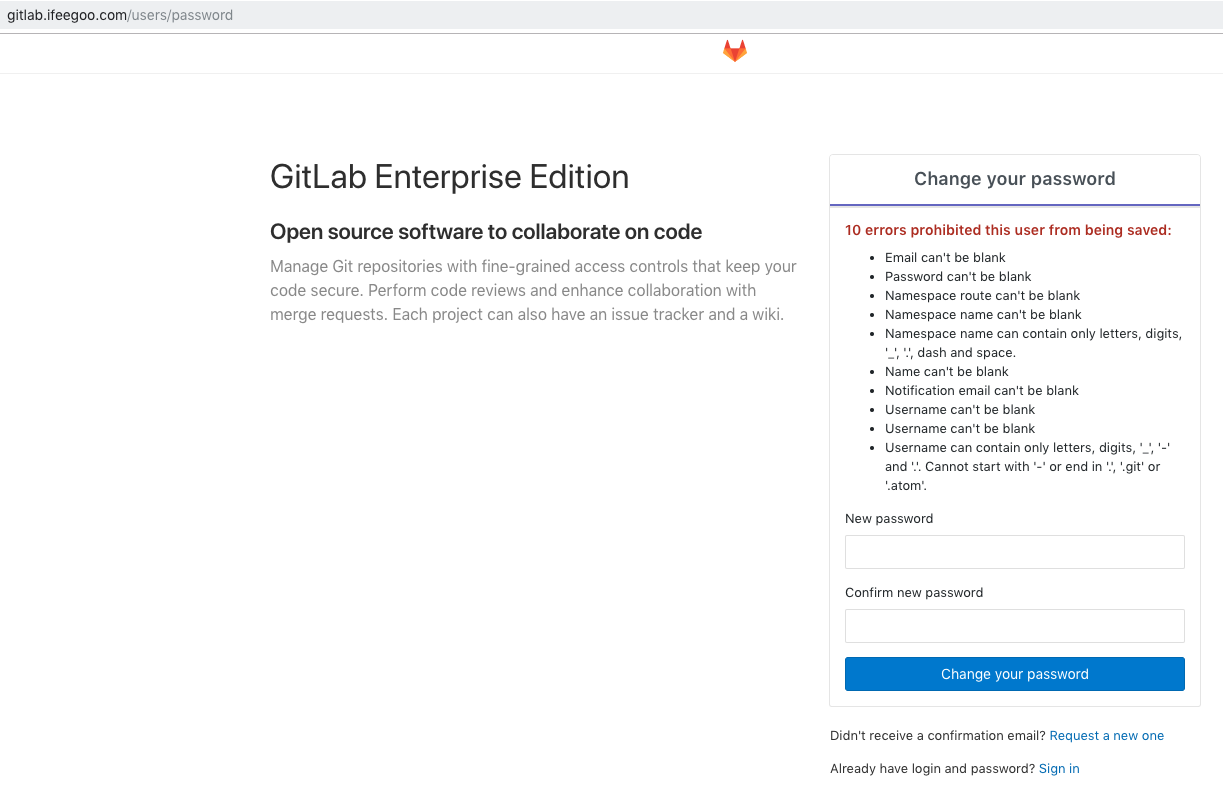


When it finishes, you should get a success message.Ĭhef Client finished, 438/620 resources updated in 04 minutes 44 secondsĪll GitLab services should be started after configuration. This will start a Chef local execution to configure Gitlab. Once done, save the file and run Gitlab reconfiguration script. There are many other GitLab CE Configuration Settings that you can set to fit your preference. This is done by editing GitLab configuration file /etc/gitlab/gitlab.rb sudo vim /etc/gitlab/gitlab.rb

You need to set URL on which GitLab will be reachable from outside. Step 4: Configure Gitlab CE on CentOS 7 / Fedora Wait for the installation to complete then proceed to configure it. Install GitLab CE by running the command: sudo yum install -y gitlab-ce Metadata_expire=300 Step 3: Install Gitlab CE on CentOS 7 / Fedora Sslcacert=/etc/pki/tls/certs/ca-bundle.crt These packages are compiled specifically for CentOS but can be installed on a Fedora system.Ĭreate a new repository file for GitLab: sudo vim /etc//gitlab-ce.repo GitLab provides omnibus packages from a repository. sudo systemctl enable postfixįor configuration of external email relay service after setting up GitLab, check configure an external SMTP server. Start and enable Postfix service after the installation. If you want to install and use local Postfix server for sending notifications, then install Postfix: # CentOS 7 # Sudo yum -y install epel-release curl vim policycoreutils-pythonįor Fedora: sudo dnf -y install curl vim policycoreutils-python3 How to easily install Git on Linux | 2022 sudo yum -y update If you do an installation on a system with lower hardware specifications, you may experience tortoise-like performance. Gitlab installation requires your server to have a minimum of 4GB ram and 2 CPU cores. The start of the actual installation of Gitlab on CentOS 7 / Fedora 37/36/35/34/33 is this section. Install GitLab on CentOS 7 / Fedora 37/36/35/34/33 Plugins and integrations: GitLab supports a wide range of plugins and integrations, including support for popular tools such as Jira, Slack, and Jenkins.Access control: GitLab allows users to set granular access controls for their repositories, including branch-level permissions and protected branches.Wiki and documentation: GitLab includes a built-in wiki and documentation management feature, allowing users to easily create and manage documentation for their projects.Collaborative development: GitLab provides tools for users to collaborate on code development, including merge requests, code reviews, and issue tracking.Continuous integration and deployment: GitLab includes built-in support for continuous integration and deployment, allowing users to automatically build, test, and deploy their code.Git repository management: GitLab allows users to host and manage their Git repositories, including support for private and public repositories.


 0 kommentar(er)
0 kommentar(er)
